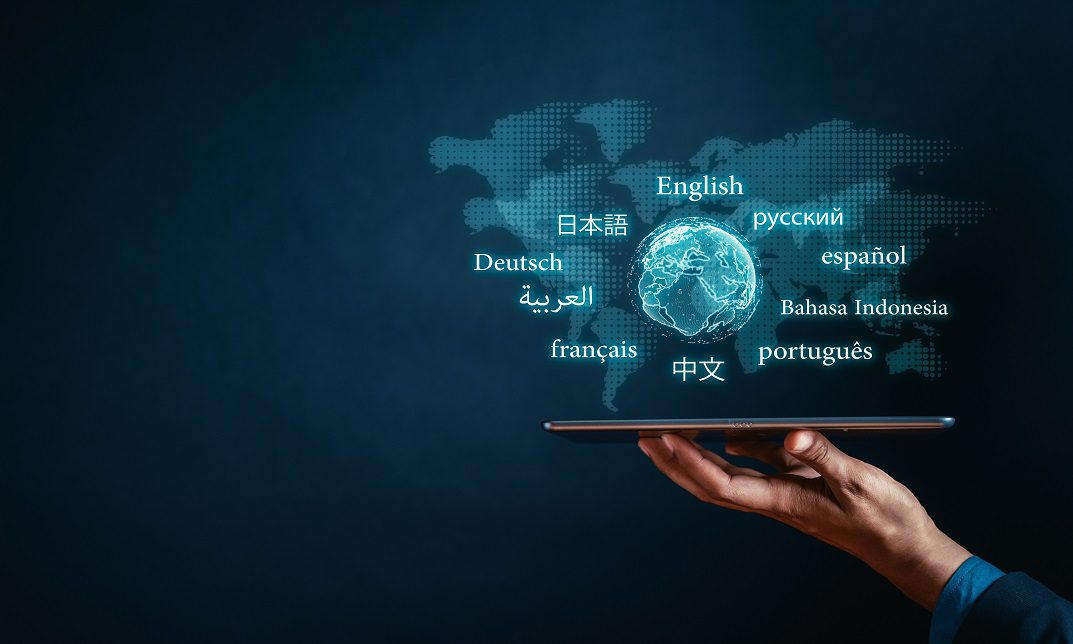
Have you ever found yourself struggling to communicate with someone who speaks a different language? Perhaps you’ve relied on a friend or family member to translate a conversation or used a translation app on your phone. However, when it comes to professional settings, ensuring clear communication across languages requires specialised skills.
This blog post will help you explore the world of language professionals. Specifically, it will focus on the distinction between translators and interpreters. While both play crucial roles in bridging the language gap, their areas of expertise differ significantly.

Translator vs Interpreter: Definition
Understanding the definition of translator vs interpreter begins with knowing what each career involves. Below are the definitions of each profession:
What is a translator?
Suppose you’re reading a super interesting blog post, but it’s in a language you don’t quite understand. That’s where translators work for it! They’re fixing language barriers between different languages. Translators can create relationships among two people through language. Taking written words from one language and turning them into another, all while keeping the meaning clear and on point. Here’s what defines a professional translator:
- Linguistic Expertise: Translators possess exceptional fluency in both the source and target languages. Translators comprehensively grasp grammar, vocabulary, and cultural nuances within each tongue. They can navigate idiomatic expressions, slang, and regional variations with finesse.
- Writing Proficiency: Translators are more than just language converters. They are skilled writers in their own right. Also, they can craft compelling and clear text in the target language.
- Cultural Sensitivity: Understanding cultural contexts is paramount for effective translation. A skilled translator can adapt the message to resonate with the target audience. Plus, it should be ensured that the translated text feels natural.
What is an interpreter?
An interpreter is someone who helps people speaking different languages understand each other. They listen to what someone says in one language and then speak it in another language. Interpreters foster effective communication in critical scenarios like business negotiations, medical consultations, and legal proceedings. Their role is paramount in bridging the language gap and guaranteeing a smooth flow of information. An interpreter is like a special translator who can listen to you both and tell each other what you’re saying!
The Difference Between Translation and Interpretation
You may wonder how people converse across languages in meetings, conferences, or doctor’s appointments. The answer lies in two skilled professions: translators and interpreters. Their goal is to fill the gap between languages; their approaches differ. Now, here, we can help you understand the key differences of translator vs Interpreter.
- Medium: Translators work on the written word. Namely, converting documents, contracts, or literary works from one language to another. They have the luxury of time to research specific terminology and ensure the highest accuracy in the target language.
- Speech: Interpreters, on the other hand, deal with the spoken word. They translate conversations, speeches, or presentations in real-time. Exceptional listening skills, quick thinking, and the ability to convey nuances of tone and meaning are crucial for interpreters.
- Accuracy vs. Fluency: Translators can prioritise pinpoint accuracy and spending time on research. Interpreters, however, often prioritise fluency and clarity, ensuring the flow of conversation isn’t disrupted. They might paraphrase or condense certain parts to keep up with the speaker’s pace.
- Beyond Words: Interpreters often go beyond the literal translation. They might consider cultural references, humour, or even body language to ensure the message is effectively delivered across cultures.
Choosing the Right Expert of Translator vs interpreter
So, which service do you need? The choice between a translator and an interpreter depends on your specific needs. If you require the conversion of a written document, a translator with subject-matter expertise is ideal. However, for real-time communication in spoken language scenarios, an interpreter is essential.
Similarities between translators and interpreters
In the world of language, there are two main jobs: translators and interpreters. Even though they do different things, they have a lot in common. They both work with language and help people understand each other better.
- Good with Languages: Both translators and interpreters need to be really good with languages. They understand different languages well, including all the small details and cultural meanings.
- Know about Cultures: They both need to understand the cultures connected to the languages they work with. This helps them make sure that the message is clear and respectful.
- Moving Meaning: Their main job is to make sure the meaning of something in one language comes out the same in another language. This could be a book, a speech, or a conversation.
- Smart Thinking: Translators and interpreters need to be smart. They have to be able to understand things quickly and think fast to do their job well.
- Always Learning: Languages are always changing, so translators and interpreters never stop learning. They keep up with new words and ways of talking to stay good at what they do.
- Doing the Right Thing: They have an important responsibility to be fair and honest in their work. They keep things private when they need to and make sure they get things right.
- Ready for Anything: Both translators and interpreters need to be flexible. They work in different ways and with different people, so they need to be able to adapt easily.
Even though they have different jobs, translators and interpreters, both help people understand each other better across languages. They’re like language superheroes, making sure everyone can communicate well!
Conclusion of Translator vs Interpreter
Translators and interpreters both do important jobs in helping people understand each other across languages. Despite their different tasks, they share many similarities. They’re both really good with languages and understand different cultures. Additionally, they can work hard to make sure messages come across clearly and respectfully. Translators and interpreters are vital in global communication. Whether translating books or helping in international meetings, they play crucial roles in bringing people together.

0 responses on "Translator vs Interpreter : The Difference You Should Know!"